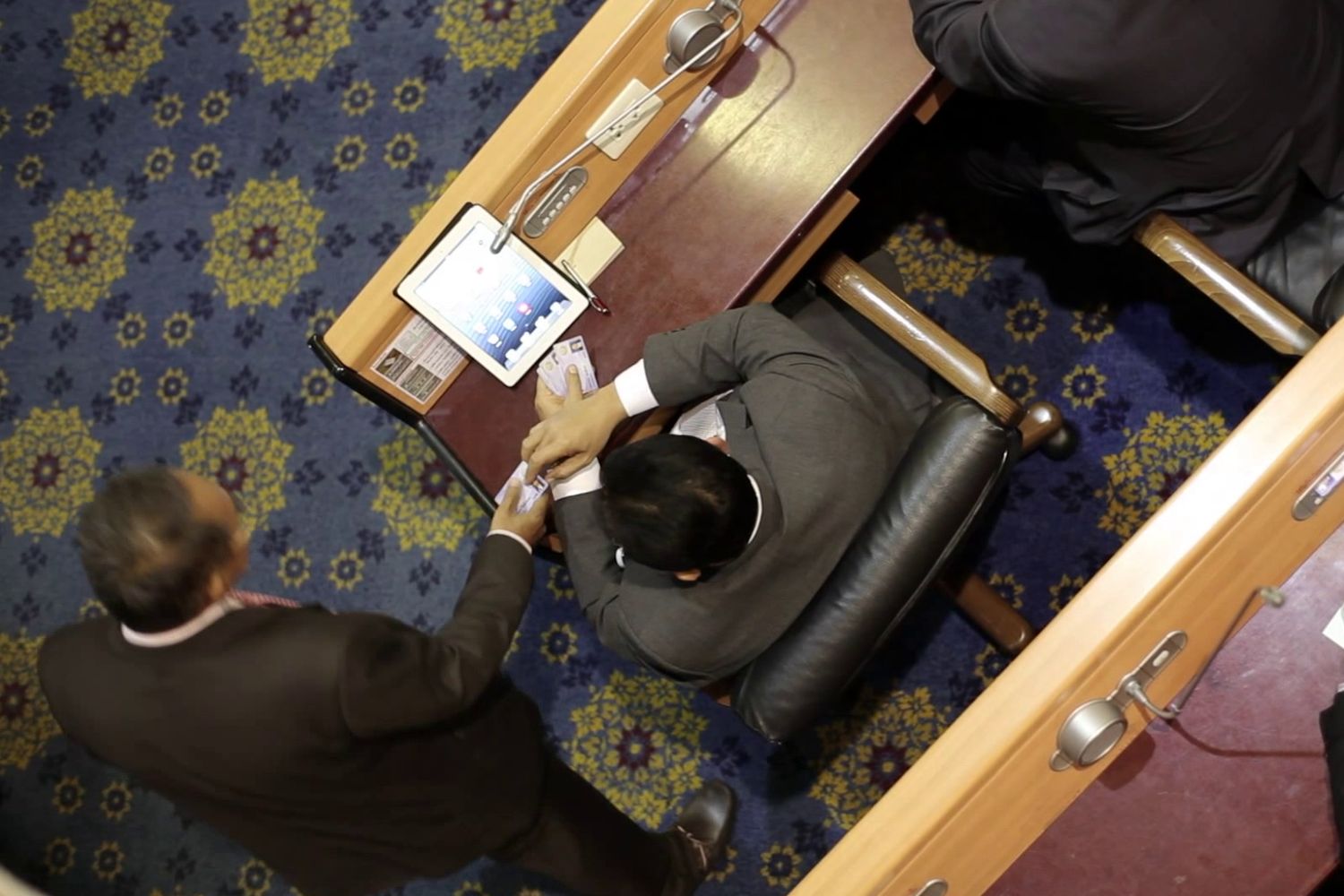
The Constitutional Court has ruled 5-4 the 2020 budget bill is partially constitutional and ordered MPs to vote again on the second and third readings during which illegal proxy voting was found.
The 3.2-trillion-baht budget bill for fiscal 2020 (October 2019-September 2020) was passed in January. It was already more than four months late due to a delay in the endorsement of general election results and the subsequent formation of the 19-party coalition government.
The government is counting on it to stimulate the sluggish economy.
Speaker Chuan Leekpai late Friday called for a special session of the House of Representatives next Thursday to repeat the two readings to comply with the court ruling. Officials hope the process can be completed within one day.
Last month, a former Democrat MP candidate brought up two cases of proxy voting by some coalition MPs. He supplied evidence that the MPs registered as casting votes electronically were elsewhere when the voting took place. A video clip by a TV station later showed other MPs who each inserted more than one voting card to vote for their absent colleagues.
The MPs involved in the proxy voting blamed it on the inadequate number of voting devices, which they claimed forced them to help others vote.
The House speaker submitted the case to the Constitutional Court to rule on whether the bill was still constitutional.
The court said in a statement issued after the ruling that proxy voting violates the one MP-one-vote principle in the charter and House regulations, and actions must be taken against the wrongdoers according to related laws.
The court said its focus on the case was the process. It found the first reading went smoothly and was therefore constitutional. However, proxy voting took place in the second and third readings during Jan 10-11, making this part of the process unconstitutional.
Besides, the court wrote, there is an urgent need for budget disbursement and the new Constitutional Court law allows it to prescribe actions to be taken.
The court therefore decided the House vote again on the second and third readings. After that, the Senate will be asked to vote again on the bill. The House must report back to the court within 30 days from Friday.
As for the widely watched issue of possible double standards, the court explained the circumstances were different.
During the vote on the 2-trillion-baht borrowing bill for infrastructure projects, a key platform of the Yingluck Shinawatra government, a Pheu Thai MP was found using more than one voting card. The court at the time, some of whose judges remain on the bench, nullified the bill.
The court at the time ruled that proxy voting breached the one-MP-one-vote principle in the 2007 constitution in effect then. The same clause is in the 2017 constitution (Section 120).
In this instance, the court said in a statement the two cases are different. Unlike the infrastructure borrowing bill, the budget bill has no essential clauses that are unconstitutional, the court wrote, without elaborating further.
Internet Law Reform Dialogue (iLaw) pointed out on Facebook that Friday’s ruling may result in the version of the bill submitted by the government which has not gone through Parliament coming into effect instead.
Section 143 of the charter prescribes that the House must finish deliberating a budget bill within 105 days from the date it reaches the House. The deadline in this case was the end of January.
As a result, iLaw contends, the revote to be held by the House by the court’s order may be unconstitutional and the version proposed by the government before the House made changes and cuts would automatically come into effect.